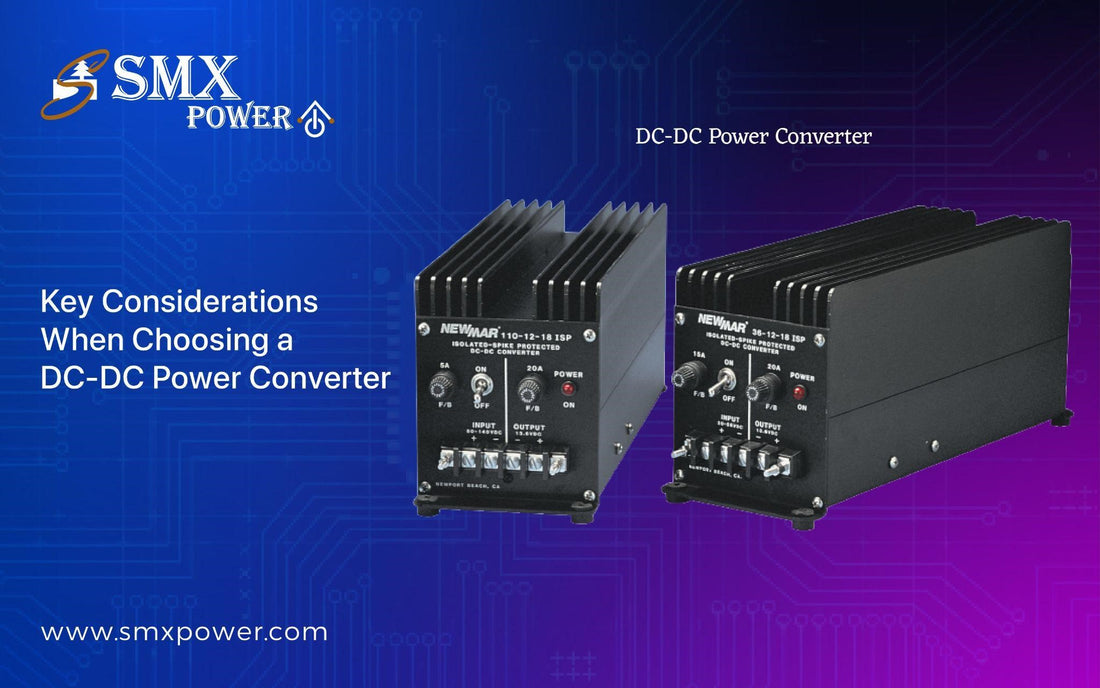Input voltage levels in some devices fluctuate because of load condition issues and other factors. DC-DC converters are essential to maintain a consistent output voltage and supply power to your device’s components. They have high power conversion efficiency and reduce the risk of power loss. Laptops, smartphones, and several other gadgets have DC-DC power converters. But, how will you choose the right DC-DC power supply for your device? Check for a few factors before making a deal.
What are DC-DC power converters?
DC-to-DC converters are electromechanical systems designed to raise or lower the input voltage. For instance, if a device has a 9V battery, the circuit will transform the input voltage into 12V or 6V. DC-DC power converters are useful for devices where sub-circuits need varying voltages.
Determine the type of DC-DC power converters
DC-DC converters are categorized in various ways-
- Step-Down (Buck) Converter- By stepping down the input voltage, the converter raises the output current. The devices have inductors and switches to control the output voltage. Electronic gadgets that need a comparatively low voltage level have buck converters.
- Step-Up (Boost) Converter- It is a Boost converter, which decreases the output current by stepping up the input voltage. The device uses a capacitor and an inductor to transfer energy. Boost converters are best for devices that need a higher output voltage. For example, high-end LED drivers in portable devices need the converters.
- Ćuk Converter- With an advanced topology, cuk converters help in Buck and Boost voltage conversion. They combine capacitors and inductors in a distinctive arrangement.
- Buck-Boost Power Converter- It is a flexible system for stepping the input voltage up or down based on the switches’ duty cycle. Buck-boost converters can be used in battery-powered gadgets and solar systems with varied voltage levels.
Various factors you must consider before buying DC/DC power converters
You should focus on relevant factors for purchasing DC/DC power supplies.
EMC and EMI
Electronic products on the market should meet regulations related to Electromagnetic Compatibility and Electromagnetic Interference. The regulatory requirements are intended to prevent the products from interfering with other products’ performance. So, certified DC-DC power converters always comply with regulatory standards.
Input-output voltage
There are diverse converter types depending on the input-output voltage difference. If the output is less, you need a step-down converter. On the contrary, if the output voltage is low, use a step-up converter. An inverting converter is best when the VIN and VOUT have varied polarity.
DC line regulation
The fluctuation of the output voltage for the input voltage is DC line regulation. The measurement is taken under low-power dissipation.
Load capacity
The term ‘load capacity’ refers to the maximum current carried by your DC-DC converter. Ensure that your chosen converter has met your system’s power needs. An overloaded converter has malfunction issues and safety risks.
Output voltage noise
The switching-mode converters have a switching nature that leads to a harmonic output tone. It aligns with the switching frequency of your power transistors. Moreover, the output voltage noise produced by the power converter should be considered while buying the device.
Quiescent current
Ground or quiescent current is used to operate your power converter. IQ is determined when you enable the converter and the load current is zero. You need a small quiescent current to increase the converter output and minimize heat.
Additional parameters for your DC-DC converters
You might have analyzed the basic factors related to DC-DC power converters. But there are some extra features beneficial to your products. Many power converters allow adjustment to the output voltage using the external resistors. Moreover, high-end power converters have load voltage sensing terminals that balance the voltage decline in conductors.
Conclusion
The DC-DC power converter should work within a particular range of DC parameters. Buying the best DC-DC converter is important for your devices. Understand the voltage needs, load capacity, and converter’s efficiency before buying the DC-DC power supplies.
Ensure your chosen power supply products are compatible with your devices. Although selecting the appropriate power converter is challenging, search for the most trusted vendor. A DC-DC power conversion is more than mere voltage transformation. It should ensure the optimal functioning of the power system.
